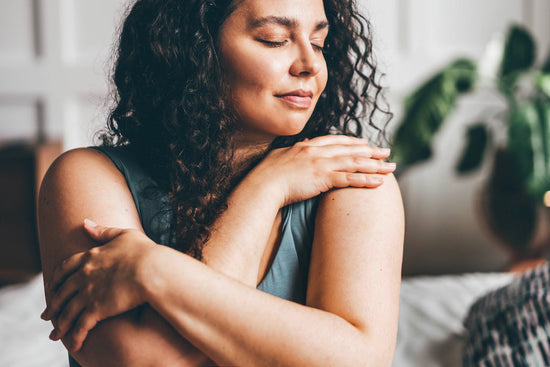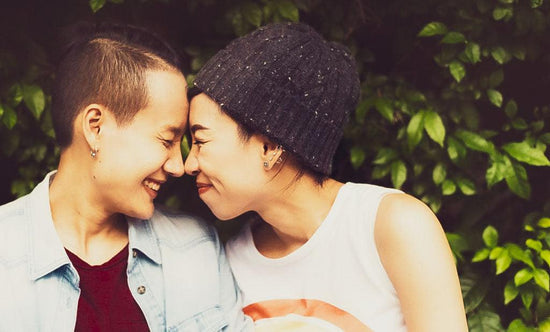
Sex education for students with disabilities: don’t leave it to Dr.Google
Caption: "When it comes to sex education for students with disabilities: don’t leave it to Dr.Google. No one should have to learn about sex online. | Photo Credit ©Joey Guidone / Behance Creative Commons
Sex education for students with disabilities: don’t leave it to Dr.Google
"Expressing sexuality is part of the human experience, yet sexual education for students with disabilities is too often ignored"
When one thinks of sexual intercourse, one imagines people doing some birds and bees action in a bed, or somewhere else. (I remember Cosmo particularly liked boats) Sometimes, there are things involved that’ll make your devoutly religious grandmother clutch her pearls and pray that you don’t become too promiscuous or be a hypersexual woman. Some are just plain weird. (Again, refer to Cosmo, as well as 50 Shades of Grey.)
Disabled people can have sexual fantasies too
Whatever sexual fantasies people imagine, ranging from the simple to the outright strange, it almost always involves abled people. That’s because they don’t know how disabled people have sex, and sometimes the disabled people themselves don’t know how to express themselves sexually, or at least are very hesitant to.
I would say that I got a decent enough sex education. When I was in middle school, I was given worksheets with the male and female reproductive systems to fill out. My fifth-grade teacher showed us the videos explaining periods and wet dreams, then we went on a field trip to Discovery Place (a family-friendly science museum) to learn how a baby was made.
In eighth grade, we spent several weeks going over STDs, and my teacher went in-depth, explaining all the contraceptives available at the time. I learned all about safe sex, what rape was and what to do if it happened, types of sex, and that sexuality is a thing.
I know about sex but only for abled bodies
Considering I grew up in North Carolina in the early-2000s, that was nothing short of miraculous. When I started high school, I had a plethora of knowledge on how to not get pregnant or catch an STD and how to protect myself. Except, I didn’t know how I, as a disabled person, could do it. Everything I saw only referred to abled bodies. Sex education for students with disabilities wasn’t covered in the classroom.
When abled people are feeling particularly nosy, they’ll sometimes ask, “Can you have sex?” Why, yes. For as long as people have genitals, then they can have sex, and that includes disabled people. Then, they’ll ask, “How?” Even though a disabled person’s sex life is none of their business, it demonstrates how lacking disabled are in the sex-ed conversation. This is but one of many reasons we need better sex education for students with disabilities.
Unfortunately, when it comes to sex education for students with disabilities, there are many myths surrounding sexuality and disabled people. However, the following is true: all people, regardless of ability level, need affection, love, and intimacy, acceptance, and companionship.
"When it comes to sex education for students with disabilities, there are many myths surrounding sexuality and disabled people. However, the following is true: all people, regardless of ability level, need affection, love, and intimacy, acceptance, and companionship."
Thanks to people talking more openly about sex, there are a lot of resources on the internet. When it came to how I could be intimate, I mainly educated myself with YouTube videos, watching other disabled people talk about their sexual experiences.
While these videos do help disabled people by providing a sort of role model as well as a sense of community, allowing people to relate through shared experiences, they also help get rid of the stigma for abled people that disabilities and sex don’t go together.
“People shouldn't have to rely on the internet to learn about sex”

Why Dr.Google isn’t the best sex education teacher for students with disabilities
Even though the internet is an excellent resource to access sex education for students with disabilities, there are several significant problems with it. The first one is that the audience is still pretty small, compared to people such as Shane Dawson or Jefree Star. What I’ve found in the disabled YouTube community is that many of the commenters are also people with disabilities.
While this is fine, since it’s good for disabled people to find connections they might not otherwise find where they live, it also means a lot of abled people aren’t getting this information that would benefit them as well as the disabled. Out of the many disabled YouTubers out there, only a small handful are very well-known beyond the community.
Another issue is demonetization. YouTube is a source of income for a lot of people, and for those who are disabled and may not be able to take on a “real” job (groan), it’s a major source of it. Yet, a lot of YouTubers worry about censoring their videos, or else they’ll get demonetized.
Also, there’s a lot of controversy surrounding the demonetization of disability videos, as well as the comment section of one channel focusing on disabilities getting comments disabled. There’s so much tea spilled when talking about these issues that British (and tea lovers everywhere) people are dying of thirst.
Demonetization and other forms of censorship/discrimination can discourage people from talking about sex. It’s an extremely complicated system. While people are free to talk about sex on YouTube, they might not want to because they rely on ad revenue, unless they’re lucky to have a sponsor or enough followers to support them on platforms such as Patreon. This limits the scope of the conversation on sex and disability can go.
Lastly, people shouldn’t have to rely on the internet to learn about sex. (clap emoji-ing between each word) The reason sex education is taught in schools is to educate students and make sure they’re fully prepared to have safe intimacy with other people. And that education must be equal since students may not feel comfortable talking about it with their parents or they grew up in a culture where it’s not openly discussed. Sex education for students with disabilities is important for every student.
It should be the school’s responsibility to make sure they’re inclusive when covering how the baby-making is done. Students shouldn’t be left wondering how disabled people put hotdogs and donuts together (or hotdogs and hotdogs or donuts and donuts) and having to pursue that education on their own.
Schools need to make sex education for students with disabilities accessible and inclusive
If schools were to improve sex education for students with disabilities, and make sex education accessible and inclusive, there’s one major issue (I know, I’m bringing up a lot of problems, but I’m an optimistic person, I swear!). Not all disabilities are created equal. Everybody is built differently, which means everyone experiences sex differently. Some disabled people will forever be on the bottom because they don’t have the strength or mobility to be toppers.
Others might have paralyzed genitalia and can only do oral sex. Some might not be able to do anything at all and must express intimacy in another way. Then there are those who have stomas, tubes attached to them, various kinds of medical equipment, and other things that I may not have covered. While they perhaps don’t affect their ability to have sex, they’re still a significant part of it because it’s a part of the body the person is sharing with someone else.
Sometimes people with these things need the confirmation that, yes, they can still have sex.
While it’s near impossible to include every kind of disability in sex education for students with disabilities (seriously, class periods are only for a limited amount of time), it’s still important to include them in the discussion. This could be just having representation in the material teachers use.
It doesn’t have to be the same disability their disabled student has, especially if that student has a rare condition, but it would still let people know that disabled people can get some birds and bees done as well. Perhaps this could make students more comfortable, as well, to ask questions in a safe place.
"When it comes to sex education for students with disabilities: don’t leave it to Dr.Google. No one should have to learn about sex online."
No one should be left wondering if disabled people can have sex and how they can do it.
It’s good that, as a society, we’re being more open to talking about sex, and that there’s an online community of disabled people sharing experiences. However, we should already have been prepared with this knowledge back when we were learning about all those awkward bodily changes (the dreaded puberty) and how to get and not to get pregnant. Adults shouldn’t have to go online to learn about how disabled people can have intimacy because our sex ed classes failed to include us.
People with disabilities want to get down and dirty, too. Stigma and ignorance shouldn’t prevent us from getting it. By making sex ed accessible and inclusive in schools by including disabilities in the curriculum, teachers create a generation of well-informed, prepared adults, both abled and disabled. It is time to make sex education for students with disabilities inclusive and accessible for all!
Additional resources on sex education for students with disabilities
There is a wide range of commercial products specifically designed for sex education for students with disabilities:
The Ultimate Guide to Sex and Disability is the first complete sex guide for people who live with disabilities, pain, illness, or chronic conditions. Useful for absolutely everyone, regardless of age, gender, or sexual orientation, the book addresses a wide range of disabilities -- from chronic fatigue, back pain, and asthma to spinal cord injury, hearing and visual impairment, multiple sclerosis, and more.
Expertly written by a medical doctor, a sex educator, and a disability activist, The Ultimate Guide provides readers with encouragement, support, and all the information they need to create a sex life that works for them. The authors cover all aspects of sex and disability, including building a positive sexual self-image; positions to minimize stress and maximize pleasure; dealing with fatigue or pain during sex; finding partners and talking with partners about sex and disability; adapting sex toys; and more.
Sex and Relationships Education for Young People and Adults with Intellectual Disabilities and Autism provides practical guidance for professionals working with, and parents or carers of, people with co-occurring autism and intellectual disabilities, on how to deliver and adapt sex education for students with disabilities and autism. People with autism have specific characteristics which can make interpersonal relationships challenging.
When this is combined with intellectual disabilities, it can make responding to these challenges even more difficult. While positive experiences can enhance the quality of life considerably, negative experiences can be life damaging.














